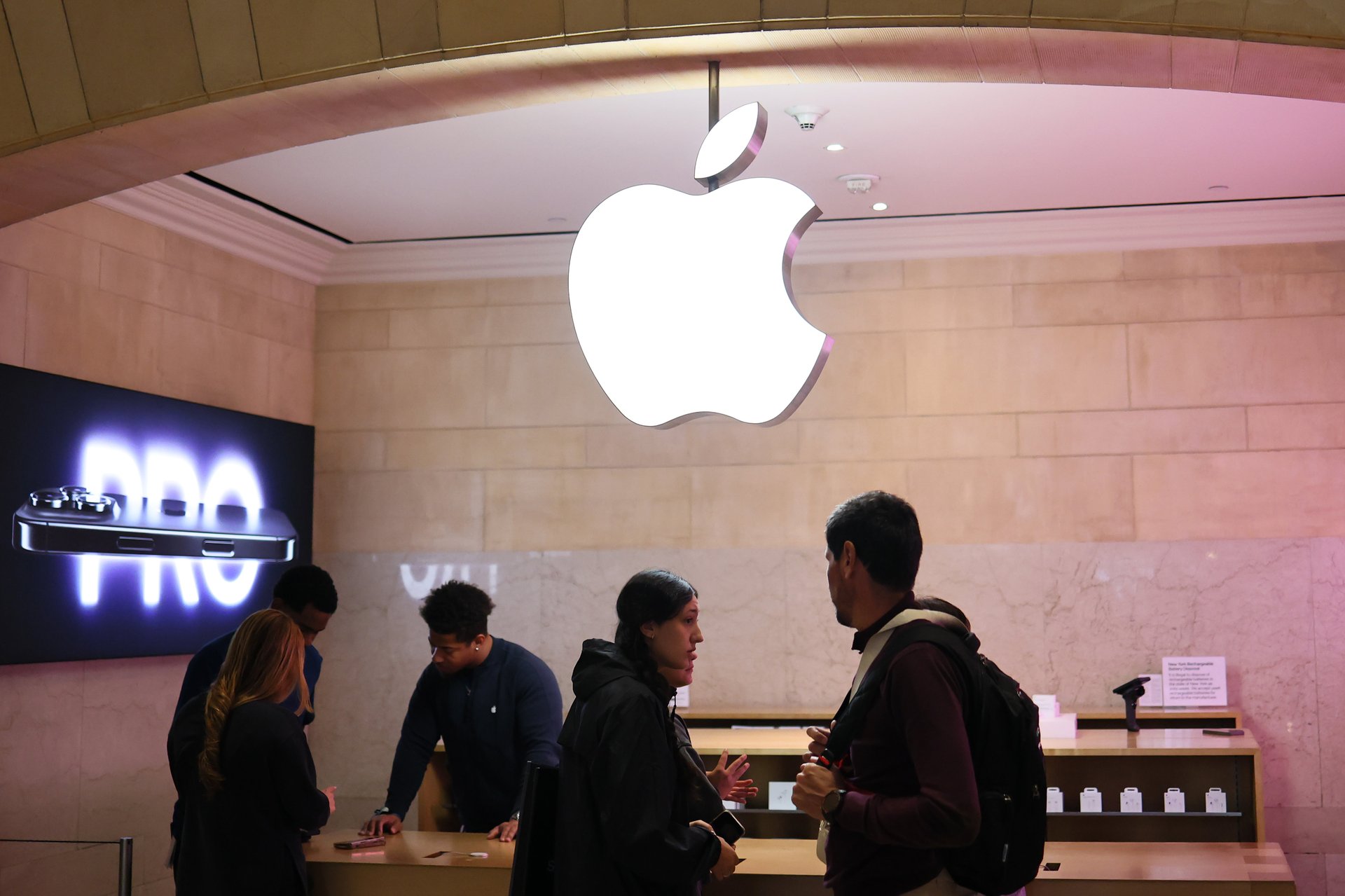Apple stock pops 5% as investors bet the tariff exemptions are real
Even as Trump and his administration send mixed messages, a surge in Apple shares shows just how much one stock can shake global markets

Apple (AAPL) stock surged 4.5% in Monday afternoon trading after U.S. Customs and Border Protection announced a temporary exemption for smartphones, laptops, and other electronics from President Donald Trump’s newly imposed 145% reciprocal tariffs on Chinese goods.
Suggested Reading
It’s the kind of move that reverberates well beyond Cupertino. Apple has a market capitalization of $3 trillion — meaning the almost 7% jump it saw in premarket trading translates into a staggering $200 billion increase in market capitalization.
Related Content
For perspective, that’s more than the total market cap of Intel (INTC), Caterpillar (CAT), or Goldman Sachs (GS). That number is nearly equivalent to the GDP of Greece or New Zealand. And because Apple is the largest by weight in the S&P 500, the ripple effect of a move like this can sway the entire index.
When Apple moves almost 7%, it’s not just a stock story — it’s a seismic event for global markets.
Tariffs whiplash tech industry
On Monday afternoon, Trump left the door open to Apple receiving temporary tariff exemptions on products manufactured in China.
“I’m a very flexible person,” Trump said in the White House in response to a reporter’s question about potential exemptions for Apple products. “I’ll speak to Tim Cook.”
Other tech companies exposed to Chinese manufacturing, including Nvidia (NVDA) and Dell (DELL), both also rallied on Monday. Nvidia was up 0.3%, while Dell climbed 4.8%.
But the celebration may be short-lived. Commerce Secretary Howard Lutnick warned that smartphones and similar devices are still slated to be included in a forthcoming semiconductor-focused tariff round “coming in probably a month or two.”
Trump echoed that ambiguity on social media, insisting no product was actually exempt and calling the change a simple reclassification.
“Look, there is no tariff policy. It’s just all chaos and corruption. That’s all we have going on,” Democratic Senator Elizabeth Warren said during a TV appearance Sunday.
Wall Street analysts say the muddled messaging adds to investor unease, particularly for companies with deep supply chain ties to China. The bottom line: The exemptions may delay pain, but they don’t erase it.
iPhone dominance endures
Even amid policy uncertainty, Apple’s core business continues to flex its strength. The company retook the global top spot in smartphone shipments for the first quarter of 2025, buoyed by strong demand for the iPhone 16e in Japan and India.
With both hardware traction and brand loyalty still going strong, Apple’s grip on the high end of the global market remains unshaken — for now.
